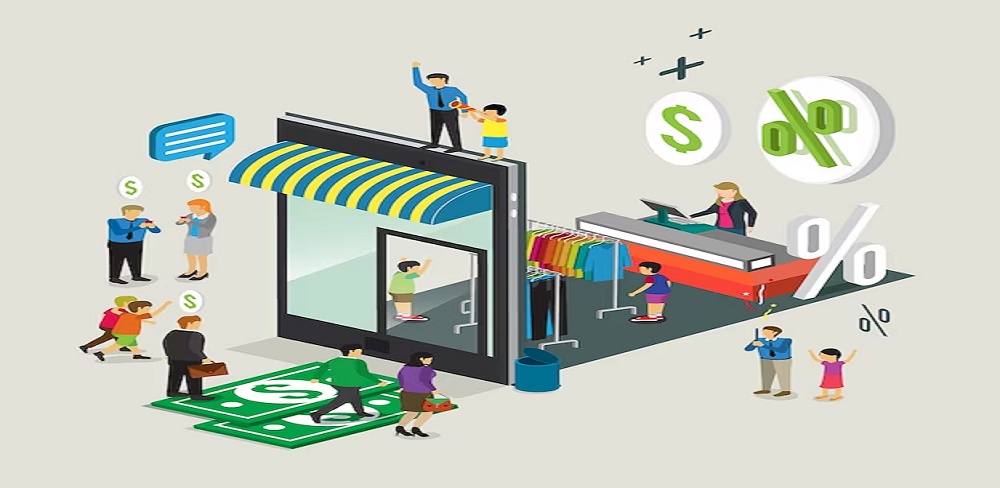In today's digital age, e-commerce has revolutionized the way we shop and conduct business. With the growing prominence of smartphones and the internet, e-commerce apps have become essential tools for businesses to connect with customers, offer products and services, and facilitate seamless online transactions.
As the e-commerce landscape continues to evolve, new trends in app development are emerging, shaping the future of online retail. From mobile commerce to augmented reality, personalization to voice commerce, e-commerce app developers are constantly innovating to enhance user experiences and cater to evolving consumer preferences. In this article, we will explore some of the emerging trends in e-commerce app development, highlighting the latest technologies and strategies that are transforming the way we shop and engage with online businesses. By understanding these trends, businesses can stay ahead of the curve and deliver exceptional user experiences in the competitive world of e-commerce.
-
Mobile commerce (m-commerce): With the widespread use of smartphones and tablets, e-commerce is shifting towards mobile devices. E-commerce apps are becoming more responsive, optimized, and feature-rich to provide a seamless mobile shopping experience.
-
Voice commerce: Voice assistants like Amazon's Alexa, Google Assistant, and Apple's Siri are becoming more integrated into e-commerce apps. Users can now search for products, place orders, and get personalized recommendations using voice commands.
-
Augmented Reality (AR) and Virtual Reality (VR): AR and VR technologies are being used to enhance the shopping experience. Customers can virtually try on clothes, visualize furniture in their homes, or experience products before making a purchase, all through e-commerce apps.
-
Personalization and customization: E-commerce apps are focusing on personalization to provide a tailored shopping experience. They leverage user data, preferences, and past behavior to offer personalized product recommendations, discounts, and targeted marketing campaigns.
-
Chatbots and AI-powered customer support: AI-powered chatbots are being used to provide instant customer support within e-commerce apps. These chatbots can answer product queries, provide recommendations, assist with purchases, and handle basic customer service tasks, improving overall user experience.
-
Omni-channel shopping: E-commerce apps are integrating with offline retail stores, allowing customers to seamlessly switch between online and offline channels. Users can view product availability, reserve items, make in-store pickups, or return online purchases in physical stores.
-
One-click payments and digital wallets: To streamline the payment process, e-commerce apps are implementing one-click payments and integrating with digital wallet services like Apple Pay, Google Pay, and PayPal. This reduces friction during checkout and enhances convenience for customers.
-
Social commerce: E-commerce apps are incorporating social media features to facilitate social commerce. Users can share product recommendations, reviews, and purchase information with their social networks. Brands can also leverage social media platforms for targeted advertising and influencer marketing.
-
Subscription-based models: Subscription-based e-commerce apps are gaining popularity, offering customers curated products, exclusive deals, and convenience. Users can subscribe to receive products regularly, access member-only benefits, or participate in loyalty programs.
-
Sustainability and ethical practices: Consumers are increasingly concerned about sustainability and ethical practices. E-commerce apps are highlighting eco-friendly products, ethical sourcing, and supporting social causes, appealing to conscious consumers.
Conclusion:
eCcommerce app development is an ever-evolving field that continuously adapts to changing consumer behaviors and technological advancements. In this article, we have explored some of the emerging trends that are shaping the future of e-commerce apps. From mobile commerce and voice commerce to augmented reality and personalization, these trends are revolutionizing the way businesses connect with customers and enhance their online shopping experiences. By embracing these trends, businesses can stay competitive, attract more customers, and build long-term relationships. However, it is crucial to stay updated with the latest developments in e-commerce app development and adapt strategies accordingly to meet the dynamic needs of the market. With the right approach and innovative mindset, businesses can leverage these trends to create exceptional e-commerce apps that provide convenience, personalization, and seamless transactions, ultimately driving success in the digital marketplace.


No comments yet